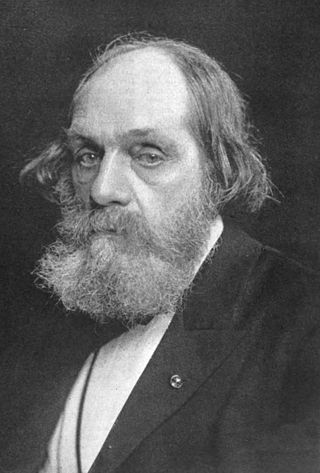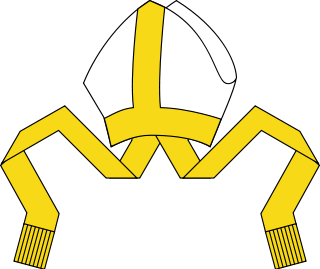Related Research Articles

Mount Washington is a town in Berkshire County, Massachusetts, United States. It is part of the Pittsfield, Massachusetts Metropolitan Statistical Area. The population was 160 at the 2020 census, making it the least populous town in Berkshire County and, after Gosnold and Monroe, the third least populous in Massachusetts. The name of the town is a tribute to George Washington, who at the time of incorporation was Commander-in-Chief of the Continental Army during the American Revolutionary War.

Everett is a city in Middlesex County, Massachusetts, United States, directly north of Boston, bordering the neighborhood of Charlestown. The population was 49,075 at the time of the 2020 United States Census.

West Springfield is a city in Hampden County, Massachusetts, United States. It is part of the Springfield, Massachusetts Metropolitan Statistical Area. The population was 28,835 at the 2020 United States Census. The city is also known as "West Side", in reference to the fact that it is on the western side of the Connecticut River from Springfield, a fact which played a major part in the town's early history.

Edward Everett was an American politician, Unitarian pastor, educator, diplomat, and orator from Massachusetts. Everett, as a Whig, served as U.S. representative, U.S. senator, the 15th governor of Massachusetts, minister to Great Britain, and United States secretary of state. He also taught at Harvard University and served as its president.

Michael Everett Capuano is an American politician and attorney who served as a U.S. Representative of Massachusetts from 1999 to 2019. A Democrat, his district included the northern three-fourths of Boston, as well as parts of Cambridge, his hometown of Somerville, and other communities immediately north and south of Boston. Prior to being elected to Congress, he served as an Alderman and Mayor of Somerville.

Edward Everett Hale was an American author, historian, and Unitarian minister, best known for his writings such as "The Man Without a Country", published in Atlantic Monthly, in support of the Union during the Civil War. He was the grand-nephew of Nathan Hale, the American spy during the Revolutionary War.

Edward Patrick Boland was an American politician from the Commonwealth of Massachusetts. A Democrat, he was a representative from Massachusetts's 2nd congressional district.

Forest Park in Springfield, Massachusetts, is one of the largest urban, municipal parks in the United States, covering 735 acres (297 ha) of land overlooking the Connecticut River. Forest Park features a zoo, aquatic gardens, and outdoor amphitheater, in addition to design elements like winding wooded trails, and surprising, expansive views. The site of America's first public, municipal swimming pool, currently, during the holiday months Forest Park hosts a popular high-tech lighting display, known as Bright Nights. Contrary to popular belief, the park was not designed by Frederick Law Olmsted, although it was designed by his firm.

Edward Francis Healey Jr. was an American professional football player in the National Football League (NFL). Regarded as one of the best linemen in the league's early days, Healey was inducted into the Pro Football Hall of Fame as part of its second induction class in 1964. He was also named in 1969 to the NFL 1920s All-Decade Team. In 1974, he was also inducted into the College Football Hall of Fame.

Alexander Hill Everett was an American diplomat, politician, and Boston man of letters. Everett held diplomatic posts in the Netherlands, Spain, Cuba, and China. His translations of European literature, published in the North American Review, were influential for the Transcendentalism movement.
Thomas Dwight was a United States representative from Massachusetts.

Horace Everett was an American politician. He served as a United States representative from Vermont.

Timothy Anthony McDonnell is an American prelate of the Roman Catholic Church. McDonnell served as bishop of the Diocese of Springfield in Massachusetts from 2004 to 2014 and as an auxiliary bishop of the Archdiocese of New York from 2001 to 2004.
Helix Human Services, which started in 1865 as Springfield Home for Friendless Women and Children and was later known as The Children's Study Home, is an organization based in Springfield, Massachusetts. It is the foldest nonprofit in Western Massachusetts. At the time of its inception, Helix addressed women's issues, family welfare, emotional rehabilitation, and child development at the end of the American Civil War era.

Thomas Michael O'Leary is an American prelate of the Roman Catholic Church. He served as the bishop of the Diocese of Springfield in Massachusetts from 1921 until his death in 1949.
The 1839 Massachusetts gubernatorial election was a tightly contested race won by Marcus Morton. Under Massachusetts law at the time, a majority of the votes cast was required to win, and Morton received exactly half the votes cast. Despite the presence of some irregularities, incumbent Whig Governor Edward Everett refused to contest the results once a legislative committee dominated by his party accepted a report giving Morton 51,034 votes out of 102,066 cast.

William Rice (1821–1897) was a Methodist Episcopal minister, author, and from 1861 to his death in 1897, the President and Executive Director of the Springfield City Library Association. He was an important public figure in nineteenth-century Springfield, Massachusetts.

Stone Dog II is a granite statue of a golden retriever posed standing guard in front of the Zoo at Forest Park in Springfield, Massachusetts. This 2013 statue, crafted by Getty Granite in Connecticut, replaced the original Stone Dog which went missing from the park in 1987, and continues a tradition with roots in the late 19th century. The present statue is almost identical to the original, measuring about 2.5 feet tall, 4 feet long, and 2 feet wide, and weighing approximately 1,000 pounds.
Thomas Wright Everett was an early American resident of the Kingdom of Hawaii who served as the last Governor of Maui from 1892 to 1893.
The 1837 Massachusetts gubernatorial election was held on November 13.
References
- ↑ Everett, pp. 12-20, 222-23